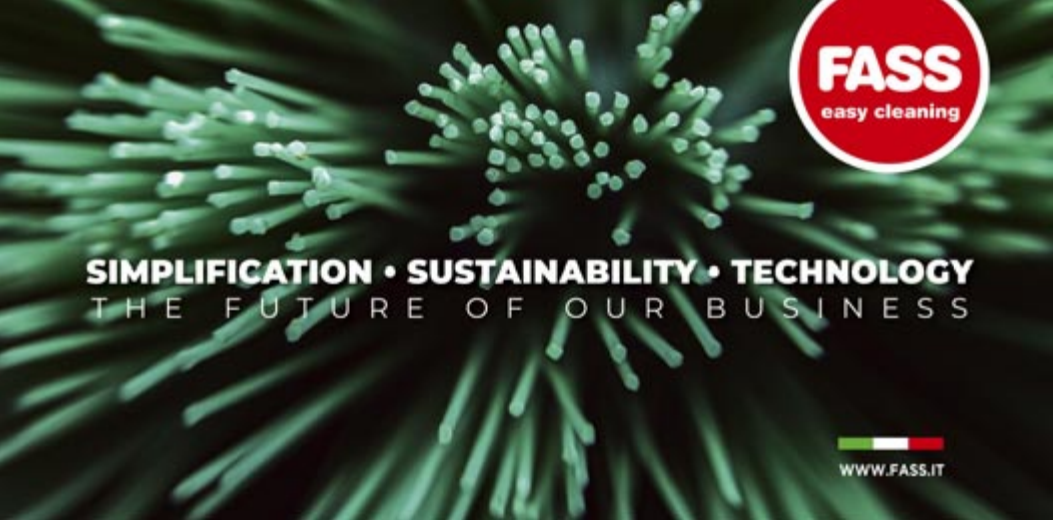The speed of change has become a constant that we all have to deal with.
The last two years have deeply transformed our society, our economy and our way of thinking. Globalization reached its peak, starting an irreversible downward spiral in front of the new economic and social paradigms: sustainability, ecological and digital transition. Global supply chains have been completely disrupted, with transportation cost now five times higher compared with two years ago and with incalculable lead times. From a macroeconomic point of view , the
result is the economies’ compartmentalization, increasingly less connected to each other and inevitably more and more self‐sufficient. This generates an higher level of local competition, a reshaping of supply and demand curves and inevitably a series of new risks and opportunities.
变化已成常态,我们必须要学着应对。
过去两年深刻改变了我们的社会、经济和思维方式。全球化达到顶峰后,面对新的经济和社会变化——可持续性、生态和数字转型,开始了不可逆转的螺旋式下降。全球供应链已被完全打乱,如今的运输成本是两年前的五倍,且交货时间无法确定。从宏观经济的角度来看,
这样产生的结果是经济体分割,彼此间的联系减弱,自足性不可避免地提高。这会加剧本土竞争,重塑供需曲线,带来一系列新风险和新机遇。

Europe: brooms and brushes evolution
欧洲:扫帚和刷子的演变
FASS’ vocation for export remains unchanged, continuing to sell products worldwide. However, the last two years have highlighted the economy compartmentalization trend, with a progressive reduction in extra‐EEC volumes and the relative increase of continental transactions. With the European continent always less globalized, we have become less dependent on Middle Eastern supplies of raw materials and semi‐finished products. How does all this translate into the broom and brush market?
FASS的出口业务保持不变,继续在全球范围内销售产品。然而,在过去两年间,经济分割的趋势凸显,欧洲经济共同体以外的交易量逐渐减少,大陆内交易量相对增加。由于欧洲大陆的全球化程度一直较低,我们对中东地区原材料和半成品供应的依赖也越来越少。这一切会如何影响扫帚和刷子市场?
The incredible growth of inflation is a natural boost to define the needs of the European consumer who has become more aware and focused on sustainability and increasingly oriented towards the trend towards beauty and quality. In few words, “less and better is more”; in front of lower purchasing power, in Europe we prefer fewer purchases but with higher quality, we prefer long lasting products and differentiation with respect to the traditional lower price policy. The cheap cost war is disappearing, thanks to the increased consumer awareness. This is the same story for brooms and brushes, which unfortunately are losing more and more space and visibility on supermarket shelves in the face of products with higher added value such as vacuum cleaners and/or domestic robotics. However the consumer still needs brooms and brushes, as long as they are of quality, design and sustainability.
疯狂的通货膨胀是重塑欧洲消费者需求的天然推动力,欧洲消费者越来越意识到也更加关注可持续性,并越来越倾向于追求美观和高品质的趋势。简而言之,“少和优即是多”。在欧洲,面对低下的购买力,我们更喜欢量少但质高的产品,与传统低价政策相比,我们更喜欢持久耐用的产品和差异化。由于消费者意识有所提高,低价成本战正在消失。扫帚和刷子市场面临同样的困境:跟吸尘器或家用机器人等附加值更高的产品相比,它们在货架上的空间和存在感越来越低。不过,消费者仍需要扫帚和刷子,只要它们质量高、设计好、具有可持续性。
Drilling and filling machines with high output technology is not the only way
高产量的钻孔机和灌装机不是唯一的解决方案
With the exception of market leading brands, whose products tend to be standardized throughout the world which allows them to take benefit from huge economies of scale, are we sure that the continuous growth of machinery RPM is what we really need? An evolved market such as the European one and the research of differentiation strategies suggest quantity reduction but above all different models based on customer needs. “Less is more” may sound like a provocation but according to FASS it is reality. Machinery manufacturers should start thinking in this direction, due to the changes we are experiencing and therefore of the greater flexibility that manufacturers like FASS need: smaller and more versatile equipment, with reduced production but with a series of accessories for control quality and batch traceability. This implies a lower equipment cost, but at the same time probably more machinery installed in the plant. It makes no sense to continue in the direction of universal machines with very high RPMs.
市场上头部品牌的产品在全球范围内趋于标准化,他们因此能够从巨大的规模经济中获益,但除了这些品牌之外,机械转速的持续增长真的是我们其他人所需要的吗?欧洲市场等不断发展的市场和差异化战略研究建议,应减少产量,最重要的是,提供不同型号以满足客户需求。“少即是多”听起来有点恼人,但根据FASS的说法,这就是现实。鉴于我们正在经历的变化,设备制造商应开始朝这个方向思考,像FASS这样的制造商需要更具灵活性:更小、更全能的设备,减少产量,但有一系列可以控制质量和追溯批次的配件。这意味着设备成本会降低,但同时需要安装的数量可能增加。继续追求高机械转速的通用设备是没有意义的。
The market is changing!
市场正在改变!
Source: Brushwork Magazine



















